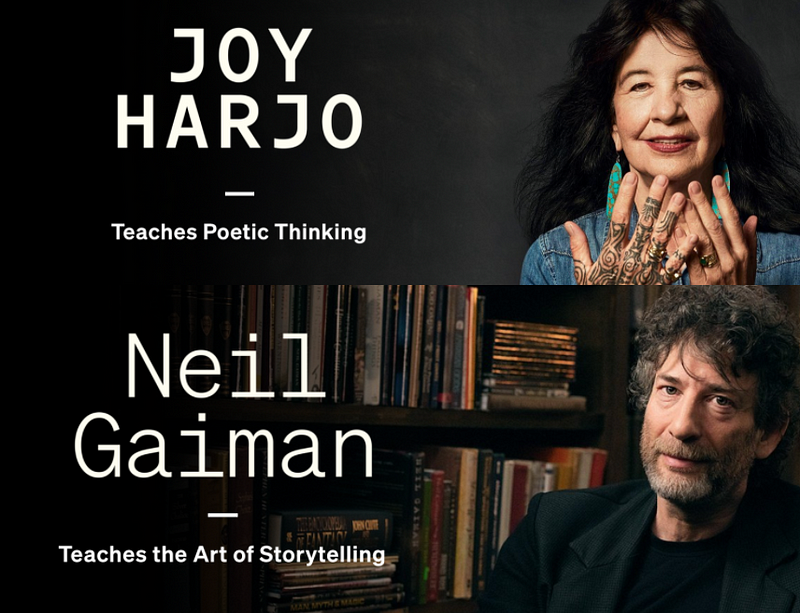# MasterClass Insights: 6 Essential Writing Tips from Experts
Written on
Introduction to MasterClass
If you’ve watched a YouTube video recently, chances are you've encountered advertisements for MasterClass. This subscription-based educational platform allows users to access pre-recorded lectures from renowned professionals across various fields.
I once tried it for a week without charge, and after canceling all my other streaming services, I decided to gift myself a year-long subscription just in time for Christmas. Now, a month in, I find myself completely captivated.
To avoid binge-watching all the lectures at once, I disciplined myself to limit my viewing to one lesson per day, progressing only after completing the associated exercises in the downloadable PDFs. So far, I’ve finished two courses: Joy Harjo's "Poetic Thinking" and Neil Gaiman's "The Art of Storytelling."

The Impact of These Courses
I can confidently say that I selected two exceptional courses to kick off my learning journey. The insights shared by these authors are both refreshing and motivating. Neil's class left me emotionally moved, while Joy’s course inspired me to express my truth. The engaging narrative and cinematic quality of the video editing made the experience feel almost like watching a captivating film.
Despite their different approaches to teaching, both Neil and Joy share overlapping philosophies about the writing process. Here are some key takeaways that resonated with me:
Training Your Listening Skills
Listening is more than just a passive activity; it requires engaging fully with your surroundings. As Joy Harjo puts it, "When you listen to silence, it’s so full of everything." Writing is about absorbing and interpreting your environment, so training your listening skills can help uncover the stories hidden within your experiences.
Cultivating a Compost Heap of Ideas
Not every idea will flourish, and that’s okay. Carry a notebook to jot down anything that sparks your curiosity—be it a lyric, a snippet of conversation, or even a doodle. Instead of fading away, these thoughts can mingle in your "compost heap," where they can develop over time, potentially leading to new stories. As Neil Gaiman notes, "everything you read, things that you write, things that you listen to, people you encounter, they can all go on the compost heap. And they will rot down. And out of them grow beautiful stories."
Writing Your Truth
Joy encourages writers to use their craft as a means of activism, to advocate for causes they believe in. Neil emphasizes the importance of writing with intent and ensuring your personal story is embedded within your work. Reflect on your truths and what messages you wish to convey. What questions do you want your readers to ponder?
The Power of Reading
Reading extensively is crucial for a writer's development. It exposes you to diverse styles, helps you understand story structure, expands your vocabulary, and ignites creativity.
Check out my recent article on the importance of reading for writers:
Dispelling the Myth of Writer’s Block
Both Neil and Joy discuss the concept of resistance in writing. If you find yourself stuck, sometimes the best solution is to step away for a moment. Return to your work with a fresh perspective, observing it as a reader would. Avoid self-judgment; letting go can often lead to clarity. As Joy puts it, "If you try to force it, it will resist."
The Importance of Perseverance
Neil highlights a critical rule for writers: "New writers should start writing and seasoned ones should finish what they began." He adds that learning often comes from completing a project, regardless of its outcome. "You learn more from finishing a failure than you do from writing a success," he states.
As I continue my exploration of additional writing classes, I anticipate sharing further insights by the end of February.